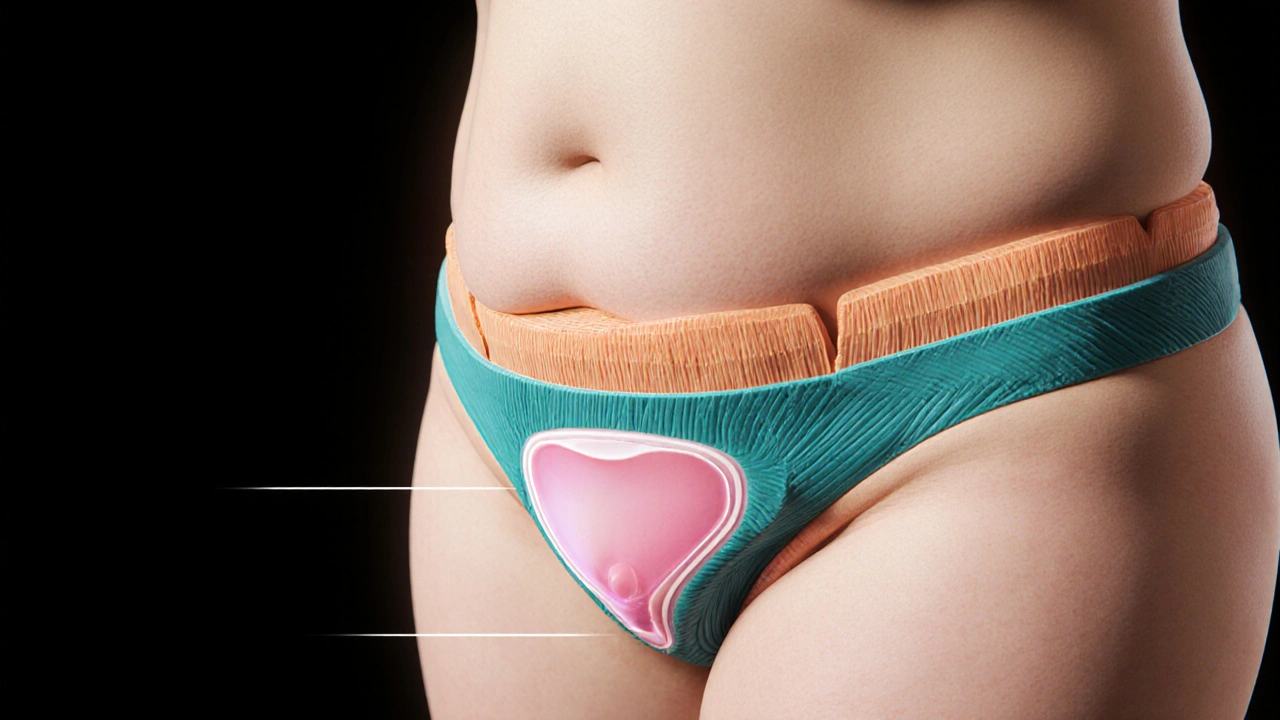Ever notice that when you gain a few pounds, you also end up running to the bathroom more often? It’s not a coincidence. Extra body weight presses on the pelvic floor and the bladder itself, making it harder for the muscles to hold urine and control the urge to go. This simple pressure‑and‑muscle link is why many people with overweight or obesity report urgency, frequency, or even leakage.
When fat builds up around the abdomen, it pushes down on the bladder and weakens the pelvic floor. Think of the bladder as a balloon tucked inside a tight box – the tighter the box, the harder it is for the balloon to expand and contract properly. That extra pressure can cause:
Research from urology clinics shows that even a 5% weight loss can reduce urgency episodes by half. The good news? Small, realistic changes can make a big difference.
1. Move a little every day. Aim for 30 minutes of brisk walking, cycling, or swimming. These activities burn calories and strengthen the core muscles that support the pelvic floor.
2. Focus on strength training. Simple squats, bridges, and pelvic tilts target the muscles that keep the bladder in place. Do two sets of 10‑15 reps three times a week.
3. Watch your fluid timing. Staying hydrated is essential, but drinking large volumes right before bedtime can wake you up at night. Spread your water intake evenly throughout the day and limit caffeine or alcohol in the evening.
4. Choose bladder‑friendly foods. High‑fiber foods prevent constipation, which can add pressure to the bladder. Include fruits, veggies, whole grains, and legumes. Avoid excessive salt, which encourages fluid retention and swelling.
5. Consider a modest weight‑loss goal. Losing 5‑10% of body weight often eases bladder symptoms enough to notice improvement. Talk to a dietitian for a plan that fits your lifestyle.
If you’ve tried these steps and still experience frequent urges or leaks, it’s time to see a healthcare professional. A simple bladder diary—recording when you pee, how much, and any triggers—helps doctors pinpoint the issue and suggest treatments like pelvic‑floor therapy or medication.
Bottom line: Your weight and bladder health are tightly linked, but you don’t need drastic surgery or expensive meds to feel better. By moving more, eating smarter, and timing your fluids, you can give your bladder the break it deserves and enjoy a more comfortable day‑to‑day life.

Explore how obesity raises the risk of urine leakage, learn warning signs, and discover effective weight‑loss, diet, and pelvic‑floor strategies to prevent urinary incontinence.